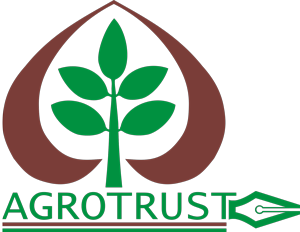[vc_section][vc_row][vc_column][vc_column_text]DEVELOPMENT LAW
The Development Law is the main development tool of the country for all
categories of businesses (small, medium, large and start-ups).
From February 2022, the new Development Law “Greece – Strong Development”
replaced the existing Development Law 4399/2016 on private investment
and will be, for the coming years, the Basic Institutional Framework for the provision of
State Aid to private investments in our country.
Key points of the new Development Law are:
– Subsidies up to 70%
The subsidy for each investment will reach up to 70% of its budget
depending on the geographical area and the size of the business.
-The maximum amount of the subsidy can reach 10 million euros per investment.
The maximum amount of aid a business can receive depends on
type, size of the business and the category of the investment plan.
Minimum investment amount
The minimum amount of the investment is defined based on the size of the organization and is equivalent to:
Large businesses to the amount of 1,000,000 €.
Medium businesses to the amount of € 500,000.
Small businesses, to the amount of € 250,000.
Very small businesses, to the amount of € 150,000.
Social Cooperative Enterprises (KOINSEP), Agricultural and Urban
Cooperatives, Producer Groups, Agricultural Partnerships, to the amount
of € 50,000.
– Forms of Aid
The new development will maintain the same system as Law 4399/2016 providing as
support regarding investment projects, subsidy, leasing subsidy,
subsidizing the cost of job creation and tax exemptions.
– Eligible costs
Indicatively the expenses that can be included in the investment budget
are the following:
-Construction Work
-Landscaping work
– Purchase and installation of new modern machines
– Mechanical/engineering Installations/machinery
– Means of Transport
-Other Equipment
– Purchase of intellectual property rights,
– Quality assurance systems – certifications,
– Procurement and installation of software
– Consultants’ Fees
– Wage costs (with mandatory increase in employment)
*** In any case the equipment must be new and unused.
AID SCHEMES
13 new aid schemes are introduced, which will allow investors to
design, develop and implement innovative ideas in all the areas
of Greek economy.
The axles of government policy in which the regimes as a whole move
included in the new development law are:
1. Digital and technological transformation of enterprises
2. Green transition – Environmental business upgrade
3. New Business
4. Fair Development Transition Regime
5. Research and applied innovation
6. Agri-food – primary production and processing of agricultural products –
Fishery and aquaculture
7. Processing – Supply chain
8. Business extroversion
9. Enhancement of tourism investments
10. Alternative forms of tourism
11. Large investments
12. European value chains
13. Entrepreneurship 360
Submission cycles
The new Development Law will include three fixed cycles per year regarding the
Submission of investment proposals so that interested investors will know
exactly how long they will be able to submit their plans to each one
status of law.
– Evaluation process
Each investment project will be assigned in terms of evaluation, inclusion and
monitoring the implementation of the physical and financial aspects, in private
chartered accountant. The supervision of the juror will last until the completion of the
investment. This will ensure a sound and fair evaluation.
The time from the submission of an investment plan to the evaluation and inclusion in the relevant scheme will not exceed 60 days .
– Fixed tax rate
The state will provide investors with a stable tax rate for several years.
– Start of submissions
The Development Law is expected to be announced immediately and immediately after that the submission of investment plans will begin.
NEW DEVELOPMENT LAW IN THE TOURISM SECTOR
• Establishment & expansion of hotel units of at least four (4) stars.
• Modernization of a complete form of hotel units that belong to or are upgraded to a category of at least four (4) stars, after five years have passed since the opening of the unit.
• Expansion and modernization of hotel units that have ceased their operation, provided that during the interruption period the use of the building has not changed and that through the expansion or modernization they are upgraded to a category of at least of four (4) stars.
• Establishment, expansion and modernization of an integrated form of Tourist Organized Camps ( camping ), which belong to or upgrade to a category of at least three (3) stars and glamping .
• Establishment and modernization of hotel units within designated traditional or listed buildings, which belong to or are upgraded to a category of at least three (3) stars.
• Co-owned hotels ( condo hotels ) and complex tourist accommodation as defined in Law 4276/2014 (A155).
• Special Tourist Infrastructure Facilities (conference centers, golf courses, tourist ports, ski resorts, theme parks, spa tourism facilities, spa treatment centers, spa tourism-thermal centers, self- healing centers , recreational centers, training centers, climbing centers, car centers)
• Establishment of hostels, new ones if the beneficiaries are cooperatives or Social Cooperative Enterprises ( Koin . S.Ep. ).
• Agritourism or wine tourism or geotourism facilities .
NEW DEVELOPMENT LAW IN THE PROCESSING SECTOR
Almost all manufacturing sectors are included. Excludes steel, synthetic fibers, coal and shipbuilding. Also, for the processing of agricultural products, applies the power of no . 31054 / 12-7-2007 of joint ministerial decision, as amended and in force.
New Development Law in the Electricity, Gas, Steam and Air Conditioning sector
• Small Hydroelectric Power Plants with installed capacity up to 15MW.
• High efficiency energy cogeneration units from RES.
• RES hybrid stations in the Non-Interconnected Islands with installed system power. storage up to 5MW.
• Production of heat and cooling from renewable energy sources.
• Energy efficient heating and cooling systems according to Law 4342/2015 (A’143).
• Production of sustainable biofuels which are not based on edible plants and are not subject to supply or mixing obligations.
• Conversion of existing plant-based biofuel plants production unit to sustainable biofuel plants units that are not plant-based and are not subject to supply or mixing obligations.[/vc_column_text][/vc_column][/vc_row][/vc_section]


